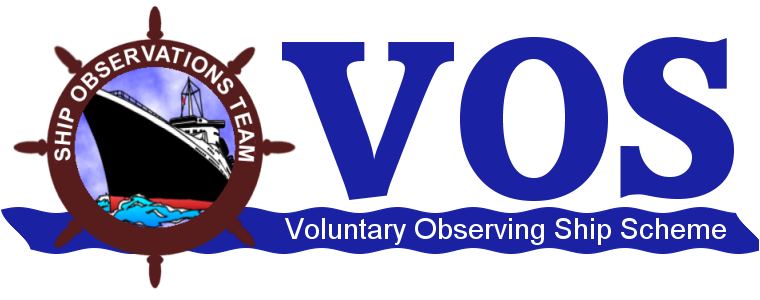» ASAP - Automated Shipboard Aerological Programme
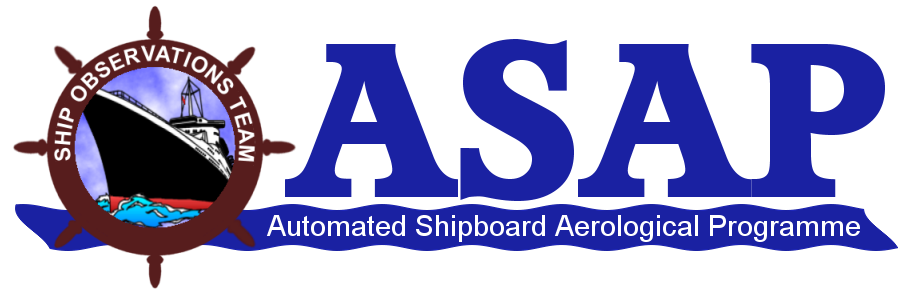 The Automated Shipboard Aerological Programme (ASAP) commenced in the mid-1980s to provide vertical profiles of temperature, humidity, wind speed and wind direction from the vast data-sparse ocean areas.
The Automated Shipboard Aerological Programme (ASAP) commenced in the mid-1980s to provide vertical profiles of temperature, humidity, wind speed and wind direction from the vast data-sparse ocean areas.
The ASAP uses radiosondes tethered to gas-filled balloons to sample the atmosphere from the surface to a height of about 30km. It operates mostly on ships participating in the VOS Scheme, but also on some research and Navy vessels.
The principal reporting areas are the North Atlantic Ocean and Mediterranean Sea operated as E-ASAP, an observing program of EUMETNET.
The ASAP is a core observing program of the SOT in the Observations Programme Area of JCOMM.
International coordination of the ASAP is through the SOT Task Team on ASAP.
» View the ASAP brochure.
» SOOP - Ship of Opportunity Programme
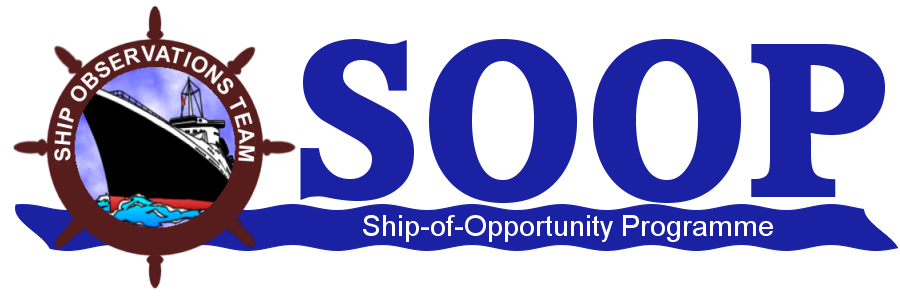 The Ship-of-Opportunity Programme (SOOP) collects a range of predominantly oceanographic data, most notably Upper Ocean Thermal (UOT) data, but also atmospheric & ocean carbon, ocean fluorescence & pigments, sub-surface temperature & salinity data.
The Ship-of-Opportunity Programme (SOOP) collects a range of predominantly oceanographic data, most notably Upper Ocean Thermal (UOT) data, but also atmospheric & ocean carbon, ocean fluorescence & pigments, sub-surface temperature & salinity data.
The UOT data are collected in the top 1000m of the oceans by expendable probes, known commonly as XBTs. The probes are deployed at regular intervals along repeat XBT SOOP sampling lines from ships participating in the VOS Scheme, as well as other merchant, research and Navy ships.
The UOT data collected by the SOOP support a range of operational and research applications, including:
- ENSO prediction;
- Tropical ocean variability and prediction;
- Global and regional heat storage;
- Ocean transport and circulation;
- Mid-high latitude variability;
- Ocean state estimation and model evaluation; and
- Climate change.
The SOOP is a core observing program of the SOT in the Observations Programme Area of JCOMM.
International coordination of the SOOP is through the SOOP Implementation Panel (SOOPIP), a sub-panel of the SOT.
» SAMOS - Shipboard Automated Meteorological and Oceanographic System
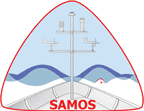 The Shipboard Automated Meteorological and Oceanographic System (SAMOS) initiative aims to improve the quality of meteorological and near-surface oceanographic observations collected in-situ on research vessels and selected VOS.
The Shipboard Automated Meteorological and Oceanographic System (SAMOS) initiative aims to improve the quality of meteorological and near-surface oceanographic observations collected in-situ on research vessels and selected VOS.
The scientific objectives of SAMOS include:
- Creating quality estimates of the heat, moisture, momentum, and radiation fluxes at the air-sea interface;
- Improving our understanding of the biases and uncertainties in global air-sea fluxes;
- Benchmarking new satellite and model products;
- Providing high quality observations to support modeling activities (e.g. reanalysis) and global climate programs.
» Visit the SAMOS website.
» DBCP - Data Buoy Cooperation Panel
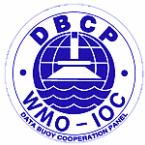 The Data Buoy Cooperation Panel (DBCP) is an international program coordinating the use of autonomous data buoys to observe atmospheric and oceanographic conditions, over ocean areas where few other measurements are taken.
The Data Buoy Cooperation Panel (DBCP) is an international program coordinating the use of autonomous data buoys to observe atmospheric and oceanographic conditions, over ocean areas where few other measurements are taken.
The DBCP aims to provide international coordination and assist those providing and using observations from data buoys, within the meteorological and oceanographic communities. It reviews and analyses requirements for such data and provides an international focus and liaison mechanism.
The aims of the DBCP are:
- To review and analyse requirements for buoy data;
- Coordinate and facilitate deployment programs to meet network requirements;
- Support information exchange and technology development;
- Improve quantity and quality of buoy data distributed on the Global Telecommunication System (GTS);
- Initiate and support action groups; and
- Liaise with relevant international/national bodies and programs.
» Visit the DBCP website.
» Argo - International Profiling Float Project
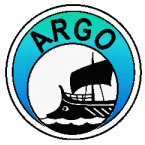 Argo is an international project to collect temperature and salinity profiles of the upper part of the world's oceans. Argo uses robotic floats that spend most of their life drifting below the ocean surface.
Argo is an international project to collect temperature and salinity profiles of the upper part of the world's oceans. Argo uses robotic floats that spend most of their life drifting below the ocean surface.
The floats record temperature and salinity measurements as they ascend to the surface, where the data are then transmitted to shore by satellites. The floats then descend to between 1000m and 2000m and drift for 10 days before ascending and recording new temperature and salinity profiles. This cycle is continually repeated over the 4-5 years expected life of the float.
The objectives of Argo are:
- To provide a quantitative description of the changing state of the upper ocean and the patterns of ocean climate variability from months to decades, including heat and freshwater storage and transport;
- The data will enhance the value of the Jason altimeter through measurement of subsurface temperature, salinity, and velocity, with sufficient coverage and resolution to permit interpretation of altimetric sea surface height variability;
- Argo data will be used for initializing ocean and coupled ocean-atmosphere forecast models, for data assimilation and for model testing; and
- A primary focus of Argo is to document seasonal to decadal climate variability and to aid our understanding of its predictability.
» Visit the Argo website.
